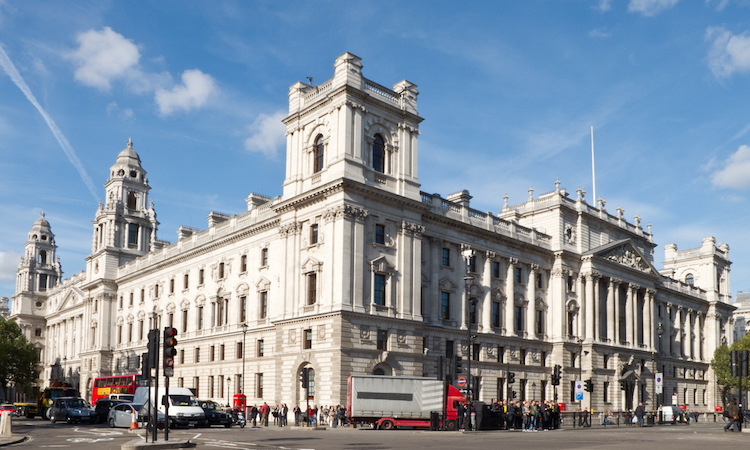
On October 31, British Finance Minister Reeves announced a much-watched policy change in his budget speech: the low rate of capital gains tax will be raised from 10% to 18%, while the high rate will also be raised to 24%. This decision has not only caused widespread concern in the UK, but also triggered international concerns about the investment environment and market confidence in the UK. This article will delve into the background of this policy change, its possible impact, and how to deal with it.
Capital gains tax is a tax levied on profits made by individuals or businesses from the sale of assets such as stocks, real estate, art, etc. The rate of capital gains tax has always been a hotly debated topic in the UK. Previously, the capital gains tax rate in the UK was 10% at the low end and 20% at the high end. However, with the continuous development of the British economy and the continuous optimization of tax policy, the government began to consider the adjustment of capital gains tax to better adapt to the current economic situation and tax needs.
The background of this policy adjustment mainly stems from the following aspects: The British government hopes to raise more funds by raising the capital gains tax rate to support public services, infrastructure construction and social welfare. It is estimated that this policy change will raise around £2.5 billion in additional tax revenue. Some public opinion believes that the current capital gains tax rate is relatively low, and there is an unfair phenomenon compared with personal income tax and corporate income tax. Raising the capital gains tax rate is helpful to narrow the tax rate gap between different tax types and realize the fairness and rationality of tax.
In the face of global economic downward pressure and domestic economic uncertainty, the British government hopes to stimulate economic growth and increase fiscal revenue by adjusting tax policy. Raising the capital gains tax rate is seen as a viable fiscal means that can alleviate fiscal pressure to a certain extent and promote stable economic development. This change in policy will have a profound impact on the UK's investment climate and market confidence. The following is an analysis of the possible impact: Raising the capital gains tax rate will increase the tax burden on investors when they sell assets, thereby reducing their return on investment. This could lead to a decline in investors' willingness to invest in the UK market, which in turn could affect the UK's investment climate and attractiveness. Particularly against the backdrop of increased global competition, a deteriorating investment climate in the UK could drive foreign investors to other, more attractive markets.
An increase in the capital gains tax rate could trigger market panic and uncertainty, leading to a setback in investor confidence. This uncertainty may make investors more cautious and conservative, reducing investment and trading activity in the market. In the longer term, this could have adverse effects on economic growth and financial market stability in the UK. Policy adjustments can lead to volatility in asset prices. On the one hand, investors may sell assets in advance to avoid future tax increases, thus triggering a decline in asset prices. On the other hand, some investors may see policy adjustments as providing investment opportunities to capture future capital appreciation by buying assets at low prices. However, such price volatility can exacerbate risks and uncertainties in the market. Different industries have different sensitivities to capital gains tax rates. For example, sectors such as real estate, finance and art are likely to be significantly affected, as these sectors typically involve significant asset transactions and capital appreciation. Sectors such as technology, manufacturing and retail are likely to be less affected because they have relatively little capital appreciation and a relatively low tax burden.
Faced with the challenges and opportunities brought by this policy adjustment, the British government and relevant stakeholders need to take positive measures to mitigate the negative impact and promote the stable development of the economy. The government should strengthen policy communication with investors, enterprises and the public to explain the background, purpose and expected effects of the policy adjustment. Enhance market confidence and reduce uncertainty through transparent and timely communication. The British government could consider raising the capital gains tax rate while reducing the tax burden on investors through other tax incentives. For example, give tax breaks or subsidies to qualified venture capital, research and development innovation, and green investment. The British government should strengthen the supervision of the financial market to prevent the volatility of asset prices caused by market panic and speculation. At the same time, investors are encouraged to make long-term investments and value investments, reducing reliance on short-term transactions. Investors can be guided to invest their funds in different industries and areas to reduce the risk of a single industry or asset. Diversify your investments to spread your risk and increase your overall return on investment.
In the context of globalization, the UK can strengthen cooperation and exchanges with other countries to jointly address the challenges brought about by tax policy adjustment. International cooperation to share experiences, coordinate policies and promote economic growth. An increase in the capital gains tax rate announced by the UK Chancellor of the Exchequer is a closely watched policy change. This change in policy will have a profound impact on the UK's investment climate and market confidence. However, by strengthening policy communication, optimizing tax policies, strengthening market regulation, promoting diversified investment, and strengthening international cooperation, we can mitigate the negative impact and promote stable economic development.

報告顯示,中國電力投資加速增長,預計2024年電網基建投資將超過5300億元。
近日,市場迎來了一則引人注目的消息:工業巨頭3M公司(MMM.N)在本周五公布了其季度業績報告,隨後股價飆升至近兩年來的
最近,外媒給OpenAI算了筆賬,今年可能要血虧50億美元。
近日,巴黎奧運會和世界鐵人三項協會聯合發布了一項重大決定,宣布因塞納河水質污染問題,原定於近期進行的奧運會鐵人三項首次下
當地時間7月18日,法國巴黎發生了一起令人震驚的持刀襲警事件。
近期,一則重大消息在國際舞臺上引起軒然大波,馬來西亞宣布加入金磚國家。
調查發現,互聯網和智能手機的使用幹擾了韓國近五分之一學生的生活。